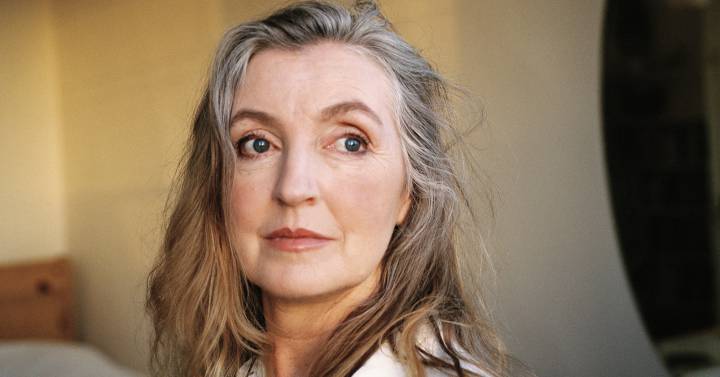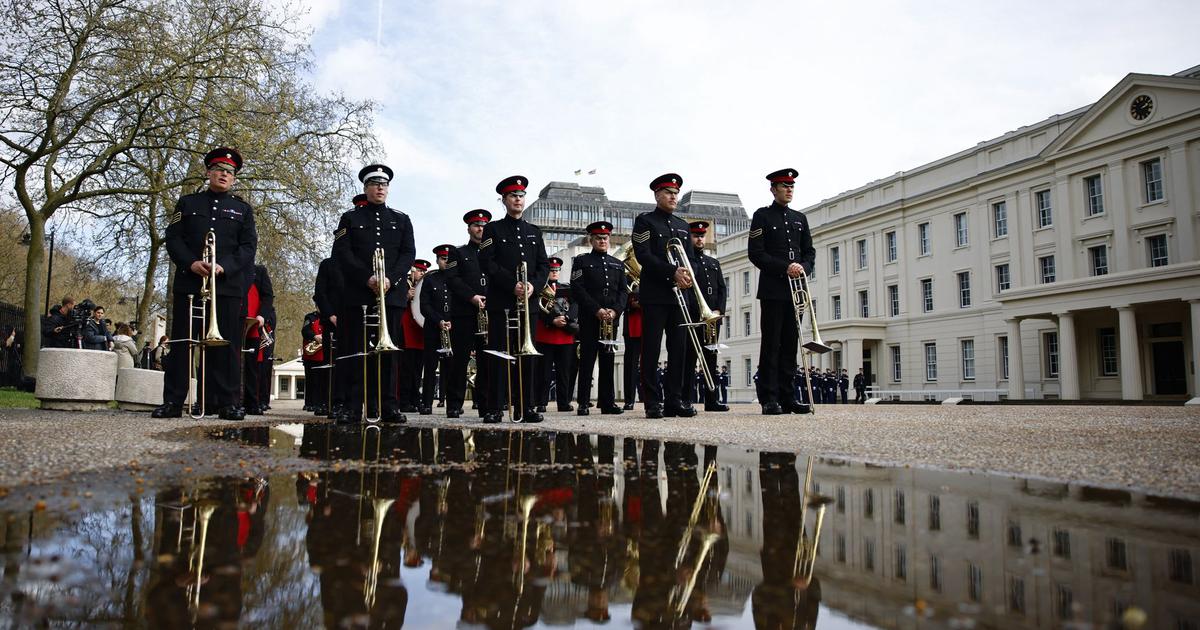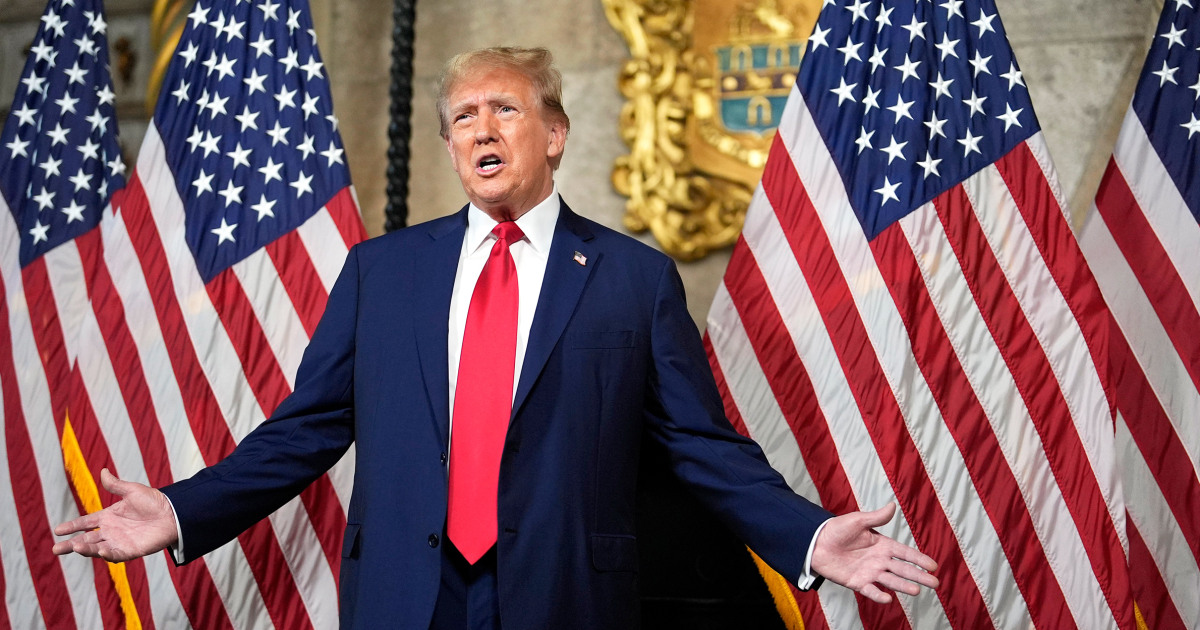Author of
Wanderlust,
a pioneering essay on the rediscovery of walking;
of Men Explain Things to Me, about condescending machismo, and of 24 other titles, American Rebecca Solnit (59 years old) is an off-road essayist who breaks up topics.
He argues that neither the victims are left unprotected - they organize - nor are the powers always there to help - after Hurricane Katrina or the earthquake that struck San Francisco in 1906, the forces of order were responsible for one sixth of the deaths.
He talks about criminalizing victims and sowing panic in order to impose authority.
In his latest book, A Heaven in Hell (Captain Swing), he demonstrates how the deepest personal and social transformation takes place during great catastrophes.
"Either we improve as a community or we will self-destruct," he warns from San Francisco.
On the other side of the screen, she is precise, eloquent.
Very natural.
Question.
Hollywood draws apocalyptic disasters.
You find hope in hell.
Reply.
The version of humanity that I have seen in catastrophes is not the one they tell us.
We are a collective species.
Animals survive by cooperating.
One baby cries and the others cry.
Q.
Why is the idea of competition perpetuated?
A.
It is in authoritarian regimes that we think that human nature is weak, selfish and violent and that we need a strong authority.
In disasters most people behave well, while elites often do the opposite.
Q. Believe blindly in people.
Haven't had bad experiences?
R
.
Clear.
And I have seen violence against women and racism.
But I get hope from what the world has changed since I was born.
In the disasters I have studied, the misbehaves are those who assume that people will act badly to justify their own behavior.
I went to New Orleans 14 times after Hurricane Katrina and saw more solidarity than danger.
But the fears were told more than the facts in newspapers like
The New York Times
or
The Washington Post, as
well as on television.
It seemed like they were only willing to believe the worst cliches about barbaric behavior.
That image became the excuse to send a military deployment instead of humanitarian aid.
New Orleans became a prison.
Police and vigilantes were shooting blacks continuously.
Some 1,500 people may not have died after that hurricane.
Q.
Tell the same story with whites and a century before.
R
.
Of the 3,000 killed in the 1906 San Francisco earthquake, 500 died at the hands of law enforcement.
P
.
Is authority always wrong and society always mistreated?
Rebecca Solnit.
Trent Davis Bailey
A.
No, but there is a generalizable pattern of how ordinary people and power respond to disaster.
P
.
What leads to abuse of authority?
R
.
The ideology.
Not believing in humanity allows many individuals to justify their own violent behavior.
They claim to be protecting the lives of others when they are guaranteeing the status quo.
Q.
Criticize the blindness of the press.
R
.
It was all in sight in New Orleans.
And what happened is not what was told.
The victims - who lost their homes - were turned into predators.
The police destroyed the stocks of closed bars to prevent, they said, looting.
It is the nature of journalism: a thousand people in solidarity are not news;
an evil one, yes, and seeing someone in a newspaper we feel as if they represent the majority of the population.
In the US the killers are mostly white.
But it is avoided to see it as the majority.
Violence against women is an epidemic and, despite the advances, not treating it as an epidemic means that every time an ex-boyfriend kills his ex-partner, we are surprised.
Today we finally speak of this pattern as something common, not as an exception.
Q.
You are a journalist.
R
.
We would never be talking about feminism, that is, equality, without so many women writing in newspapers.
Q.
Why are so many poor people supporting authoritarian rulers?
R
.
Everything in American society has been built to believe that we cannot trust each other and that we need the rulers to enforce order.
But movements like Black Lives Matter demonstrate the extreme lack of confidence that a large part of the population has in authority.
When you give people too much authority, it ends up justifying the use of violence to maintain order.
And that is not order, it is fear.
P
.
Are all the police corrupt?
R
.
Here the police are like a gang, if you join them you accept their rules.
And its norms go through using violence and repressing certain sectors, as if blacks were a threat for the mere fact of existing.
P
.
Without exception?
A.
We have seen unarmed men shot in the back.
You want me to moderate the speech, and of course there are exceptions like black policewomen, but in the United States the police are above all an organization that protects itself before anyone else.
Their unions seek to protect themselves from the consequences of their mistakes, justify violence and build a white and supremacist culture.
As a society, we are debating whether we want to continue like this or not.
Q.
During the pandemic, Donald Trump has disobeyed authority.
R
.
It's fun.
Protestant men have held power here for 240 years.
But the possible rise to power of non-white or non-Christian people makes them see themselves as an oppressed minority.
Trump's entire political career appeals to that: not to maintain power - which is legitimate - but to prevent anyone of another color, religion or sex from accessing it.
But our demographic future is different: there will not be a white and Protestant majority.
Q.
What will happen on Tuesday?
R
.
If the elections are fair, it is almost impossible for Trump to win.
Q.
It seemed impossible in 2016.
R
.
That confused Hillary Clinton's 85% chance of 100%.
Many people thought that they did not need to vote because they did not like her.
Then they were shocked.
P
.
You are not?
Rebecca Solnit.
Trent Davis Bailey
R
.
No. The unexpected happens all the time.
Trump won because, with racist and misogynistic proposals, television presented him as a winner: the self-made successful man.
Today the country is worse.
Many people have abandoned it.
If the elections are free and fair, Joe Biden and Kamala Harris will win.
But it is clear that Trump does not aspire to win a fair election.
He sets out to build chaos and profit from it.
That is why the question is: will there be generalized violence if the majority desire loses or will it be respected?
P
.
What does it depend on?
R
.
From peaceful civil resistance, the behavior of the Democrats and whether the Republicans are, or not, willing to support an illegal coup.
I have studied the Spanish civil war and I see that Trump is a cross between a drunken clown and a possible Franco.
He is not disciplined enough to be authoritarian, but he would love to stop being governed by the Constitution and become a dictator to be succeeded by his children.
Q.
Consider social networks the crash of this generation.
A.
One ends up losing control over oneself.
Bolsonaro was president of Brazil thanks to YouTube.
Q.
Your lectures are on YouTube and we are talking on Skype.
A.
A bulldozer can build an orphanage or go against people.
It is not the tool, it is what it is used for.
Those companies don't mind selling their tools to individuals who want to destroy the press or diversity.
They don't stop climate change deniers from using them.
I have always been proud of what San Francisco represented in the US: environmentalism, gay rights ..., and now we are known by Facebook, Google or Apple, who have violated the privacy of their users and have misinformed.
P.
In your books you speak of public love versus private love.
R
.
I am not against love between individuals, but we have idealized it - half of Hollywood movies are romances - in a way that we have not celebrated public love.
I wanted to study how much we need to belong to a community.
Life gains meaning with that relationship.
Disasters bring the collective utopia closer.
P
.
Utopia is unattainable by definition.
R
.
Clear.
There is no utopia, there are utopian moments.
Eduardo Galeano says that one walks towards it but cannot get there.
That path improves us.
In Mexico, after the 1985 earthquake, a large part of the population valued civil ties and distrusted authority.
They ended up breaking the monopoly of the PRI.
If you think utopia can be achieved, you are talking about the Soviet Union, where we have already seen what happens.
But it is important to remember the satisfaction we find in helping and being helped.
P
.
William James described solidarity as a dormant energy that awakens in extreme situations.
How did you discover it?
R
.
I was 15 when we suffered a drought in San Francisco.
Of that I remember more solidarity than lack of water.
The same after the 1989 earthquake. It was as if everyone knew what to do: help.
I transformed myself: I forgot who I was angry with.
When I investigated the 1906 earthquake, I found that the same thing had happened.
When Hurricane Katrina hit I decided to go see what happened.
The disaster illuminates.
We believe that our problems are personal, but they are collective.
Oxfam has warned of major catastrophes.
It is better that we face them together.
P
.
In this second wave of coronavirus, many infections occur at parties.
R
.
We behave in accordance with our beliefs.
If you believe in the collective good, you wear a mask.
If you defend individual freedom over caring for one another, you reject it.
P.
As your president.
R
.
Exact.
The far right here has turned masks into a form of oppression.
But there is also a group of women of Asian origin that has sewn more than 100,000 for vulnerable groups.
P.
Many catastrophes equal us, but the coronavirus does not: there are people who cannot telework.
R
.
Any disaster is worse for the poor.
If an earthquake destroys your house, who will be able to afford a hotel?
Now there are people accustomed to domestic service who have had to become their children's teacher.
Her life has been very different from that of those of us who decided not to have children.
Most women have borne more weight than men because almost all of them do not yet do 50% of the domestic work.
We must face it even if we are the ones who excuse them.
A woman never does enough.
And whatever the man does for the house is wonderful, heroic.
P
.
In his essays he mixes his mother's Alzheimer's with Che Guevara.
Is it a way to hide?
R
.
Psychology and psychoanalysis have led us to tell stories in an egocentric way, disconnecting from what surrounds us.
Individualism is a fiction.
Physically, ecologically, nourishingly, at work and intellectually, humans form networks.
I explain our history interwoven with others.
I try to show that we are not just what goes through our heads.
P
.
Alzheimer's transformed his relationship with his mother.
R
.
Much of his memory was resentment and unrealistic expectations of me.
He had grown up in a culture that considered that a mother exists to take care of her sons and a daughter to take care of her mother.
He wanted her to be his mother, his caregiver, and his best friend.
And he also wanted to be able to take his anger out on me because he didn't dare stand up to men.
When he lost his memory, he lost that anger too.
And he started treating me like my brothers.
A story can be an escape door, but also a prison that cages you.
Q.
That you felt discriminated against as a child pushed you to look at those who are discriminated against?
R
.
It is very difficult for a child to realize that things can be different because the one who is not treating you well is the one who, in turn, is teaching you values.
But I was interested in what was left untold.
Living in a mostly black neighborhood when I was 19 made me see.
I got there because it was cheap and I needed to leave home.
I stayed 25 years.
I learned a lot about prejudice.
When I grew up, they assured us that the Native Americans had disappeared and that there had not been many, but in 1992 they rebelled against the fifth centenary of the arrival of Christopher Columbus in America.
They were conquering rights, including that of being visible.
That changed history.
And it gave me hope.
People who have been oppressed for centuries went from surviving to trying to tell their story and thus to changing history with capital letters.
The work is not done.
But I have seen successes in search of the truth.
Q.
You went to live in Paris when you were 17 years old.
R
.
I wanted a better education… and also to get away from my family and a boyfriend I had.
P
.
Who paid for the trip?
R
.
I received a $ 2,000 inheritance and borrowed from a brother.
In Paris I worked and lived on $ 150 a month.
You could say that I left home.
Q.
The New Yorker
wrote that you are a guest of poverty, not an inhabitant.
R
.
It is true that I grew up as a middle class.
But when I left when I was 17 years old, I met the shortage.
Although it was easier to be poor and housing was cheap, I lived on the bare minimum.
Today I value this time as a school.
I realize that many people around me do not appreciate what it means to be able to buy a sandwich without thinking twice.
Poverty is a trap that generates a lot of anxiety, but it forces you to constantly choose.
The poor make decisions every day.
P
.
She has written that if she had had a husband, or children, she would not have been able to write her 25 essays.
R. Maybe with a husband who did not expect me to make him breakfast ... I have published a lot because I have worked a lot, but I have not had the responsibilities that other people want.
P.
Thoreau wrote that we do not find ourselves until we are lost.
In
Wanderlust he
talks about that need.
R.
Walking through nature brings you to know yourself.
Doing it for a city leads you to meet others.
Q.
What does one need to get lost?
R
.
Trust yourself.
Be willing to go beyond what you know.
Smartphones have made machines obey.
Trying something else is enriching.
Discovering the world is discovering yourself.
Q.
Are you happy?
R
.
I'm not a fan of happiness.
Many people believe that it should be an uninterrupted state that is reached by avoiding any problems.
That makes them ignore the injustices and suffering of others.
Many unhappy people do not know how to recognize that they need to get involved with others because it is not a value that is celebrated today and they believe that meaning will come into their lives with personal experiences instead of getting involved with others.
Committing to other beings is very contrary to the individualistic capitalist culture, which seems to say that we only need beautiful things.
Q.
How do you feel trying to improve the lives of others?
R
.
A sense that goes beyond happiness.
Judge Ruth Bader recently died.
Was happy?
Sure, she didn't spend as much time as other people organizing picnics or buying dresses, but I think she always felt that her life was helping to improve society.
We tend to wonder if they love us instead of wondering if we love what surrounds us.





/cloudfront-eu-central-1.images.arcpublishing.com/prisa/ZRLOH32ENCW263BU2E35WQOSNA.jpg)



